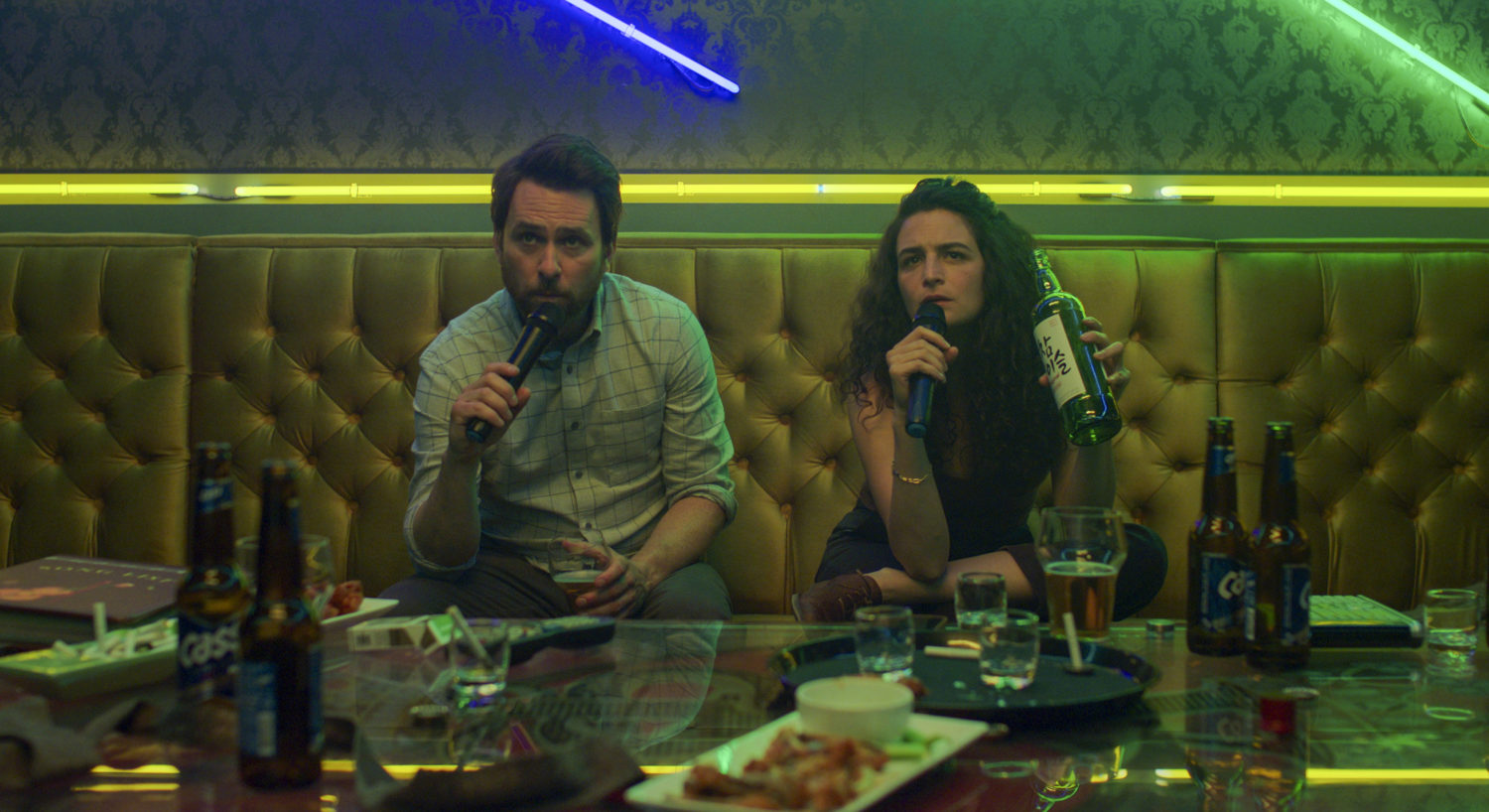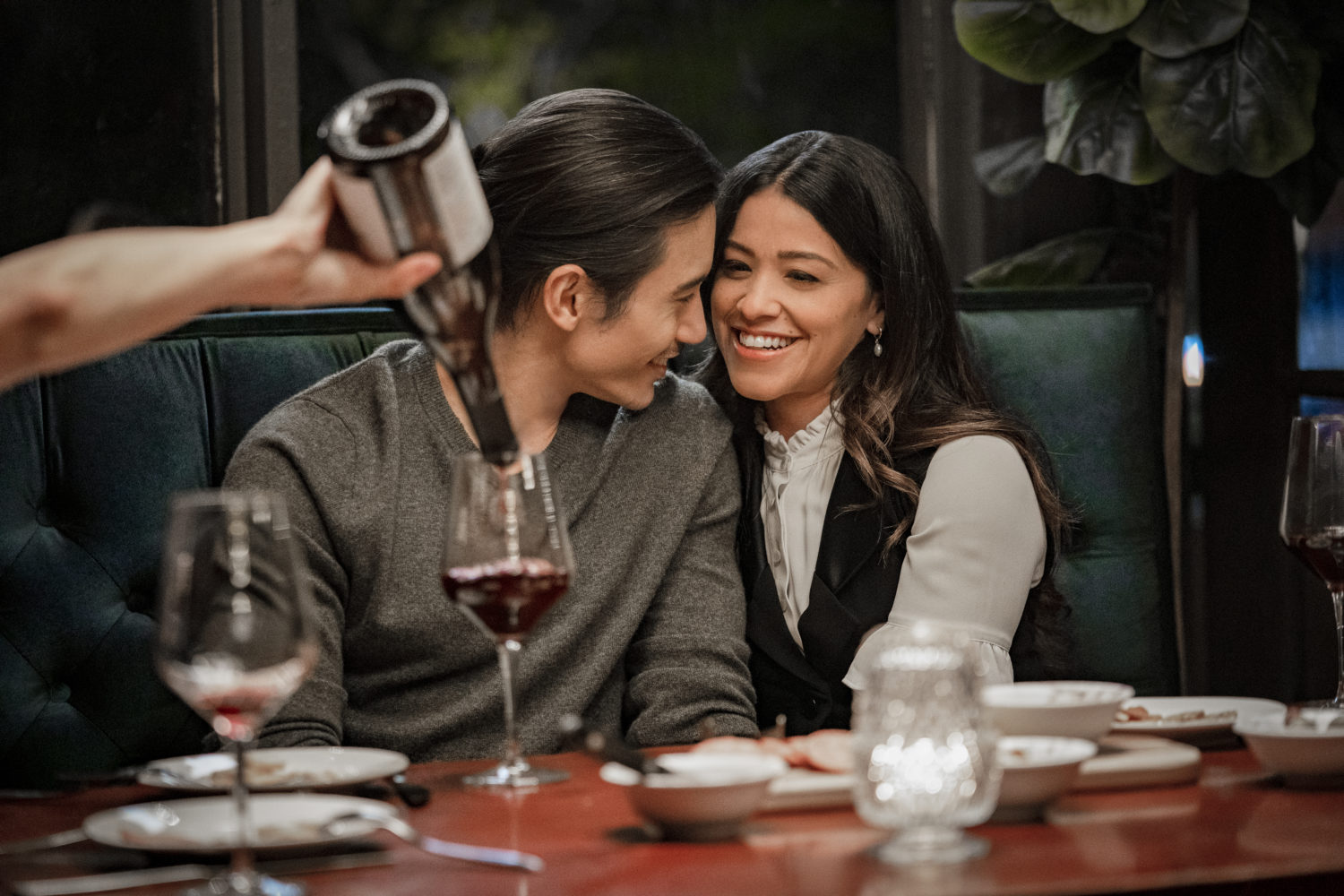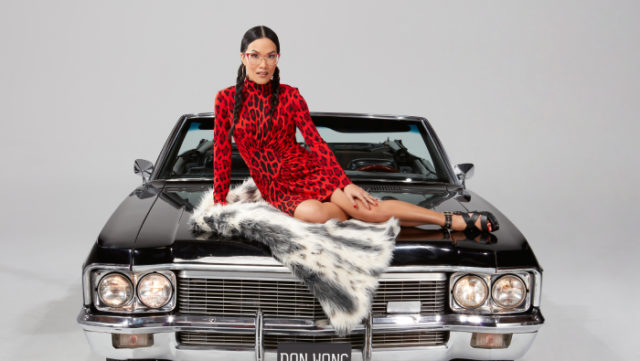With Valentine’s Day fast approaching, there’s no escaping the endless amount of pink heart decorations, the piles of chocolates at grocery stores and the countless couples with affection dripping from their eyes. Isn’t love beautiful?
For most people, sure. But that isn’t the case for the two protagonists of the Amazon Studios original film “I Want You Back,” Peter (Charlie Day) and Emma (Jenny Slate), who have both been unceremoniously dumped by their significant others. Premiering today, Feb. 11, the film follows the two 30-somethings who find comfort in each other as “sadness sisters” before Peter and Emma realize they could help one another on their quests to win back the loves of their lives, Noah (Scott Eastwood) and Anne (Gina Rodriguez), who have both moved on to new relationships. While some films would hinge on that aspect alone, “I Want You Back” twists expectations by shifting the focus to Peter and Emma’s increasingly bizarre antics as they both try to help one another get back their exes.

The film’s array of colorful characters delightfully toe the line between tried-and-true romantic comedy tropes and realism. “I Want You Back” isn’t afraid to let its characters out of genre stereotypes, as two of the leading male characters voice their excitement about marriage and settling down, while female characters like Emma and Anne find themselves on the fence about commitment. All of the characters felt natural, although of course with some exaggerated flair, without audiences getting the sense that the writers were trying too hard to keep up with the times. Instead, “I Want You Back” provides a natural progression to the genre that can keep modern viewers’ attention without diverging too far from the most beloved aspects of romantic comedies.
The entire cast, from supporting actors to leads, also helped with their expert delivery of the creative team’s witty dialogue. Both Slate and Day fully commit to the characters’ somewhat unlikeable and flawed personalities, selling their characters’ back-and-forth banter and escalation tactics. Slate in particular thrives in her character’s more wacky moments, like when she’s seducing theater director Logan (Manny Jacinto) whilst volunteering for a middle school play. Jacinto also makes for a standout, and might give even his most diehard fans the ick as he devotes himself to portraying a character who seems to care more about the aesthetics of being artistic than the feelings of others.

Director Jason Orley and his team allow all those characters to shine by focusing the central conflict of the film on the characters’ internal struggles rather than external situations. “I Want You Back” is wisely centered on the protagonists’ sense of growth rather than their romantic entanglements, providing a genuine emotional centerpiece amidst the silliness of the premise. While the romance does, of course, play a large part in the film, viewers will soon find themselves more invested in the betterment of the two leads, who started the film at rock bottom and throughout the film slowly develop into better versions of themselves. By focusing on these aspects of the film, Orley provides a new perspective and highlights the idea that—gasp—maybe it’s not a bad idea to focus on yourself instead of a relationship.
Unfortunately, while “I Want You Back” starts off strong, the third act drags on, making it tough to validate the film’s two-hour runtime. Although Day and Slate have a wry and entertaining chemistry, any self-improvement their characters experience throughout the film seems ignored in favor of a more stereotypical happy ending. Instead of feeling like a payoff, it comes as something of a letdown after the film’s earlier unexpected twists.
Maybe it’s too much to ask for a romantic comedy to not have a happy ending—after all, these types of films are built on escapism and wish fulfillment. But “I Want You Back” could have gone from good to great if only it was 20 minutes shorter, and allowed our two main characters the freedom for independent growth.







